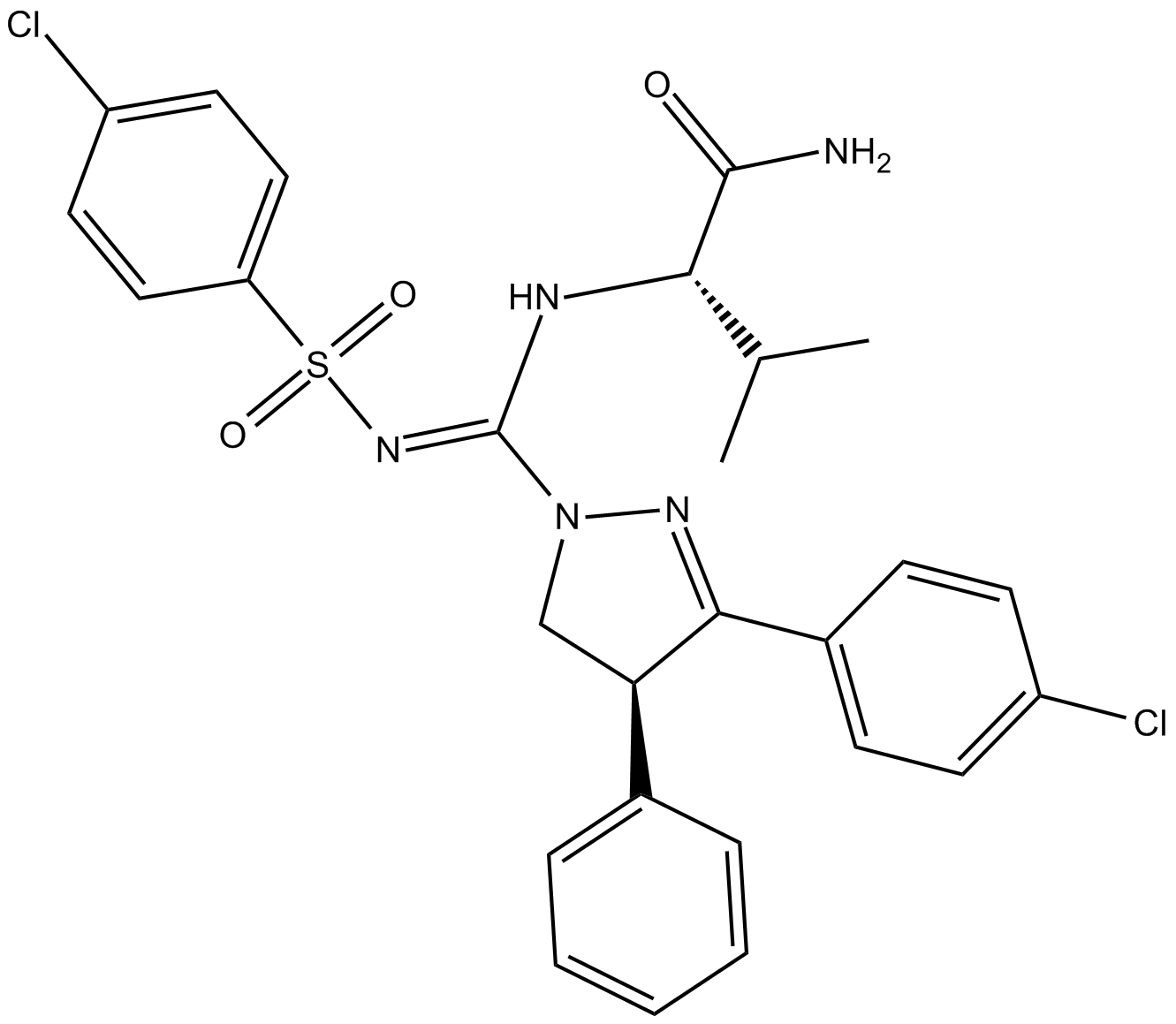JD5037 |
| Katalog-Nr.GC13660 |
JD5037 ist ein potenter CB1R-Antagonist mit einem IC50 von 1,5 nM.
Products are for research use only. Not for human use. We do not sell to patients.

Cas No.: 1392116-14-1
Sample solution is provided at 25 µL, 10mM.
Ki: 0.35 nM
JD5037 is an inverse agonist at CB1 receptors.
Endocannabinoids, lipid mediators, can elicit a broad range of effects through G protein-coupled CB1 and CB2 receptors. Activation of CB1R can promote food intake, increase lipogenesis in adipose tissue and liver, and cause insulin resistance and dyslipidemia, suggesting that the endocannabinoid/CB1R system is involved in obesity and metabolic complications.
In vitro: Previous study showed that JD5037 had high CB1R binding affinity and >700-fold CB1/CB2 selectivity when compared with SLV319. In addition, it was found that both SLV319 and JD5037 were CB1R inverse agonists, verified by GTPgS binding. Moreover, CB1R specificity of JD5037 was further confirmed as a potency ratio of >1,000 relative to a panel of 70 transporters, receptors, and ion channels [1].
In vivo: In mice with diet-induced obesity, the peripherally restricted JD5037 was found to be equieffective with its brain-penetrant parent compound in reducing appetite, body weight, hepatic steatosis, as well as insulin resistance, even though it did not occupy central CB1R or induce related behaviors. Moreover, appetite and weight reduction caused by JD5037 were mediated by resensitizing diet-induced obesity mice to endogenous leptin via reversing the hyperleptinemia by decreasing leptin expression and secretion by adipocytes and increasing leptin clearance through the kidney [1].
Clinical trial: So far, no clinical study has been conducted.
Reference:
[1] J. Tam, R. Cinar, J. Liu, et al. Peripheral cannabinoid-1 receptor inverse agonism reduces obesity by reversing leptin resistance. Cell Metabolism 16, 167-179 (2012).
Average Rating: 5 (Based on Reviews and 18 reference(s) in Google Scholar.)
GLPBIO products are for RESEARCH USE ONLY. Please make sure your review or question is research based.
Required fields are marked with *




















